What Does It Mean When A Debt Is Discharged
What Does It Mean When A Debt Is Discharged - In other words, when a debt is discharged, the. To discharge a debt means to eliminate the debtor’s legal obligation to repay it. Discharge (of debts) refers to the process in bankruptcy court, when a debtor is no longer liable for their debts, and the lender is no longer. A bankruptcy discharge releases the debtor from personal liability for certain specified types of debts. A discharge releases a debtor from personal liability of certain debts known as dischargeable debts, and prevents the creditors owed those. What is a discharge in bankruptcy?
To discharge a debt means to eliminate the debtor’s legal obligation to repay it. In other words, when a debt is discharged, the. A discharge releases a debtor from personal liability of certain debts known as dischargeable debts, and prevents the creditors owed those. What is a discharge in bankruptcy? Discharge (of debts) refers to the process in bankruptcy court, when a debtor is no longer liable for their debts, and the lender is no longer. A bankruptcy discharge releases the debtor from personal liability for certain specified types of debts.
In other words, when a debt is discharged, the. A bankruptcy discharge releases the debtor from personal liability for certain specified types of debts. To discharge a debt means to eliminate the debtor’s legal obligation to repay it. What is a discharge in bankruptcy? A discharge releases a debtor from personal liability of certain debts known as dischargeable debts, and prevents the creditors owed those. Discharge (of debts) refers to the process in bankruptcy court, when a debtor is no longer liable for their debts, and the lender is no longer.
What does debt is discharged?
Discharge (of debts) refers to the process in bankruptcy court, when a debtor is no longer liable for their debts, and the lender is no longer. A bankruptcy discharge releases the debtor from personal liability for certain specified types of debts. To discharge a debt means to eliminate the debtor’s legal obligation to repay it. A discharge releases a debtor.
What Debts Are Discharged in Chapter 7 Bankruptcy?
What is a discharge in bankruptcy? A bankruptcy discharge releases the debtor from personal liability for certain specified types of debts. A discharge releases a debtor from personal liability of certain debts known as dischargeable debts, and prevents the creditors owed those. Discharge (of debts) refers to the process in bankruptcy court, when a debtor is no longer liable for.
Debts Discharged in Bankruptcy Infographic
A discharge releases a debtor from personal liability of certain debts known as dischargeable debts, and prevents the creditors owed those. To discharge a debt means to eliminate the debtor’s legal obligation to repay it. What is a discharge in bankruptcy? Discharge (of debts) refers to the process in bankruptcy court, when a debtor is no longer liable for their.
How Does a Bankruptcy Discharge Work? Lexington Law
In other words, when a debt is discharged, the. A discharge releases a debtor from personal liability of certain debts known as dischargeable debts, and prevents the creditors owed those. Discharge (of debts) refers to the process in bankruptcy court, when a debtor is no longer liable for their debts, and the lender is no longer. A bankruptcy discharge releases.
Dischargeable Debts Definition What Does Dischargeable Debts Mean?
A bankruptcy discharge releases the debtor from personal liability for certain specified types of debts. Discharge (of debts) refers to the process in bankruptcy court, when a debtor is no longer liable for their debts, and the lender is no longer. A discharge releases a debtor from personal liability of certain debts known as dischargeable debts, and prevents the creditors.
Chapter 7 Bankruptcy 24 Hour Legal Advice Ask A Lawyer Live Chat
To discharge a debt means to eliminate the debtor’s legal obligation to repay it. What is a discharge in bankruptcy? A bankruptcy discharge releases the debtor from personal liability for certain specified types of debts. Discharge (of debts) refers to the process in bankruptcy court, when a debtor is no longer liable for their debts, and the lender is no.
What Types of Debt are Discharged in Bankruptcy
A bankruptcy discharge releases the debtor from personal liability for certain specified types of debts. A discharge releases a debtor from personal liability of certain debts known as dischargeable debts, and prevents the creditors owed those. Discharge (of debts) refers to the process in bankruptcy court, when a debtor is no longer liable for their debts, and the lender is.
How Bankruptcy Gets Discharged Overview, Impact, Prevention
A discharge releases a debtor from personal liability of certain debts known as dischargeable debts, and prevents the creditors owed those. A bankruptcy discharge releases the debtor from personal liability for certain specified types of debts. To discharge a debt means to eliminate the debtor’s legal obligation to repay it. What is a discharge in bankruptcy? In other words, when.
Debt Discharge What it is, How it Works
What is a discharge in bankruptcy? To discharge a debt means to eliminate the debtor’s legal obligation to repay it. Discharge (of debts) refers to the process in bankruptcy court, when a debtor is no longer liable for their debts, and the lender is no longer. A discharge releases a debtor from personal liability of certain debts known as dischargeable.
Which Debts Are Discharged in Chapter 7 Bankruptcy? Best Bankruptcy
A discharge releases a debtor from personal liability of certain debts known as dischargeable debts, and prevents the creditors owed those. Discharge (of debts) refers to the process in bankruptcy court, when a debtor is no longer liable for their debts, and the lender is no longer. In other words, when a debt is discharged, the. What is a discharge.
What Is A Discharge In Bankruptcy?
A bankruptcy discharge releases the debtor from personal liability for certain specified types of debts. Discharge (of debts) refers to the process in bankruptcy court, when a debtor is no longer liable for their debts, and the lender is no longer. In other words, when a debt is discharged, the. A discharge releases a debtor from personal liability of certain debts known as dischargeable debts, and prevents the creditors owed those.
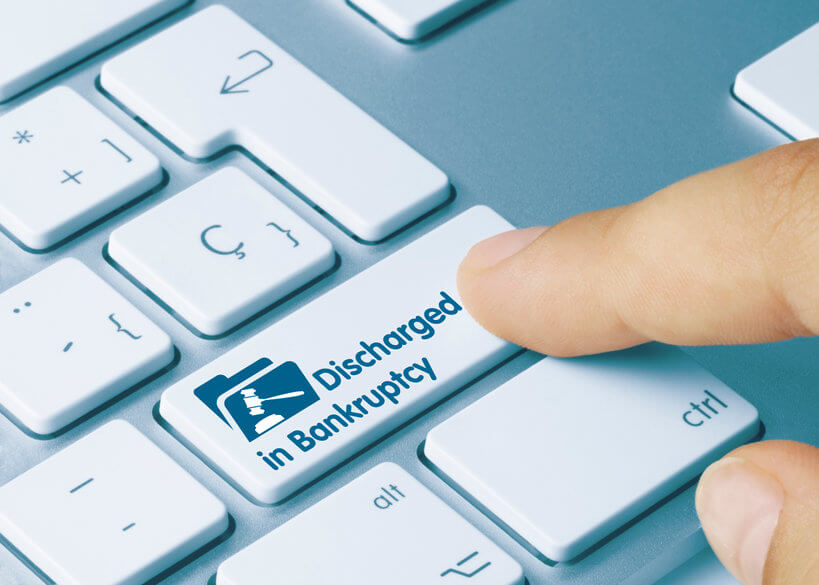
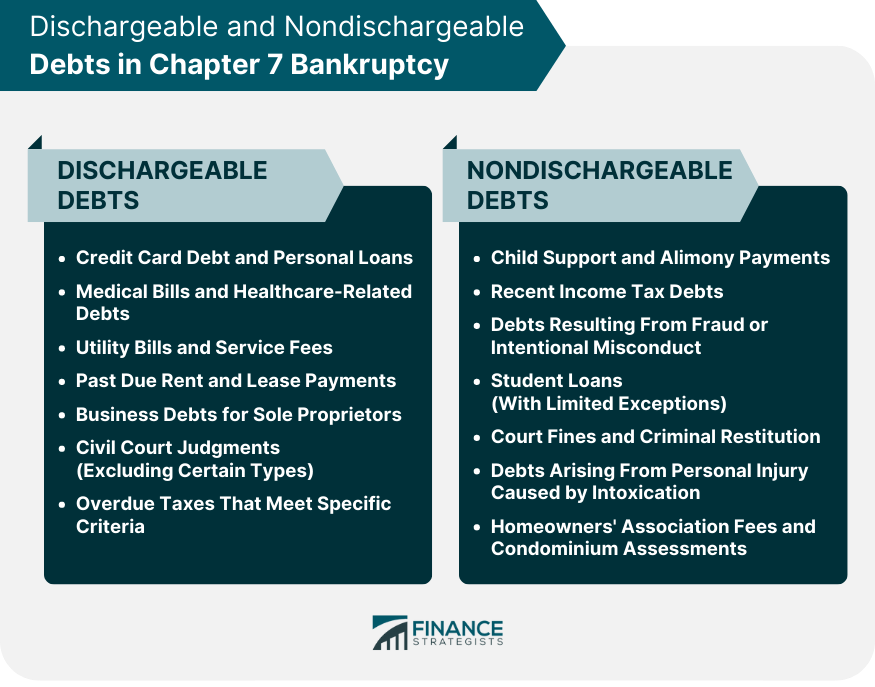


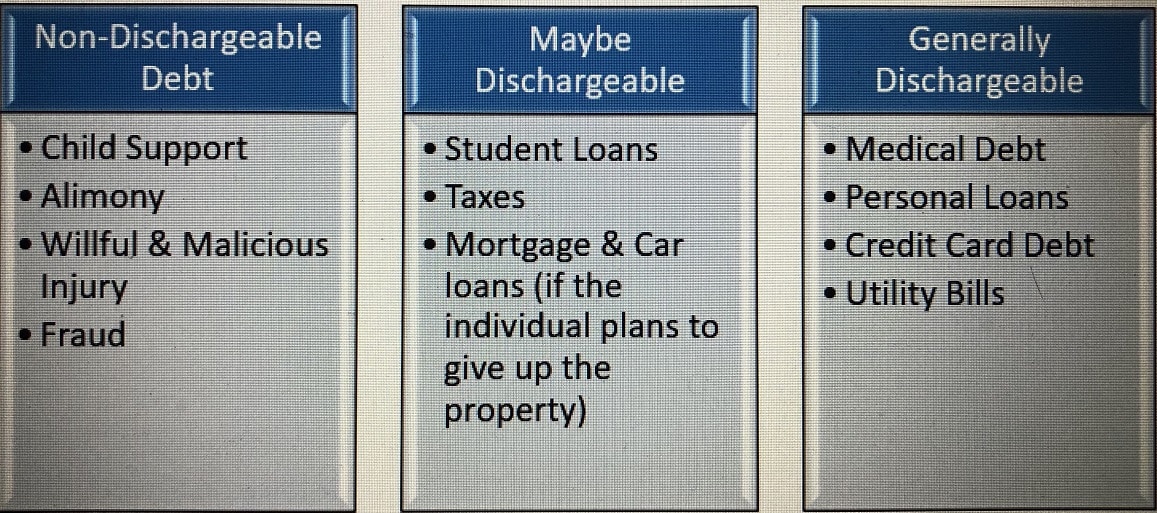
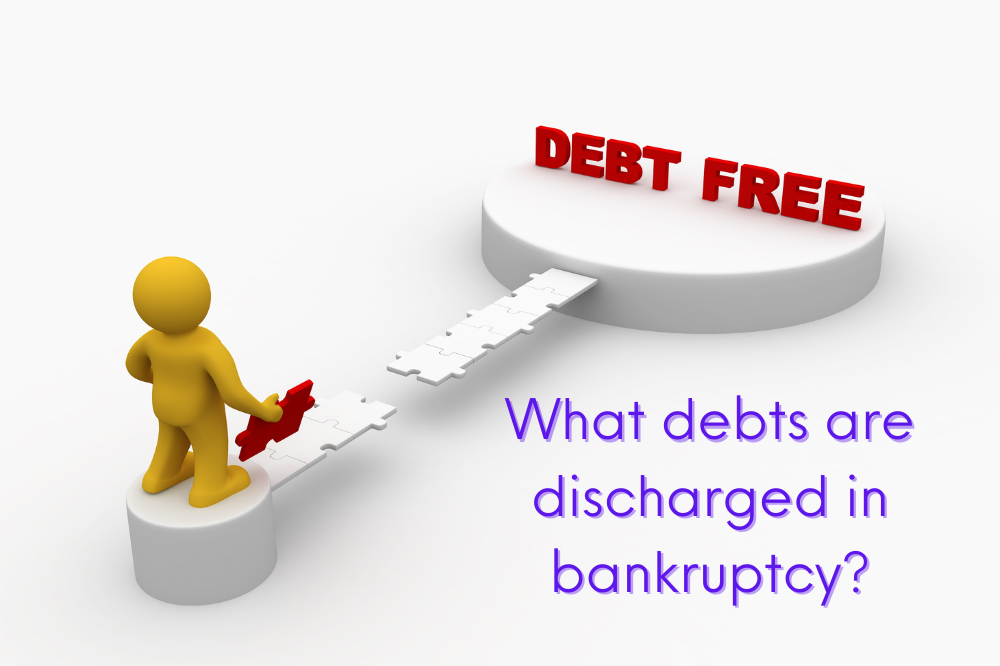
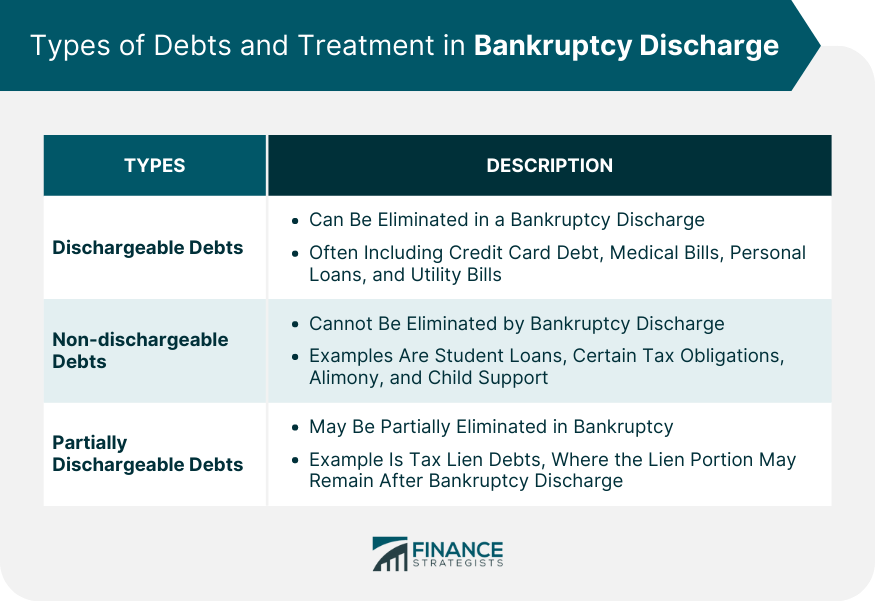
:max_bytes(150000):strip_icc()/finalnew-cd2c2367ef8f4fcdaa1e9218acf86c9d.jpg)
